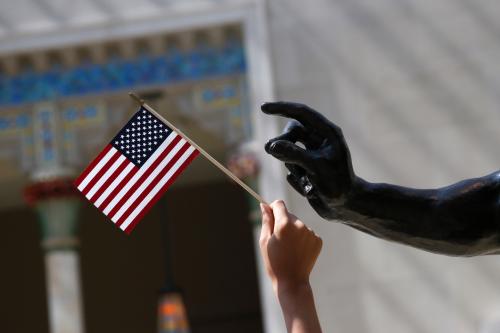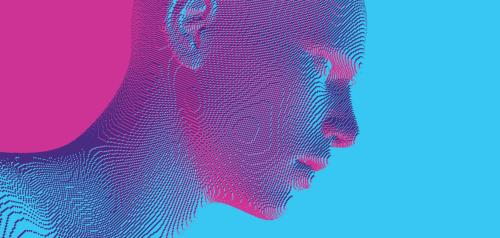This article originally appeared on Real Clear Politics on April 26, 2017.
People are worried about the character of President Trump. Seasoned observers fear that he lacks the “temperament” for the office he occupies, and in particular the vital capacities for self-restraint, reflection, and empathy.
This is understandable. The character of the commander-in-chief of the most powerful nation on earth is an important matter. But what about the voters? Many of us, including liberals, are happy to comment on the virtues and vices of our rulers. We are more reluctant to turn a mirror on ourselves.
But the character of citizens matters a great deal, especially in a liberal republic. “The worth of a state,” John Stuart Mill observed, “is the worth of the individuals composing it.” A tolerant and productive society does not result from wise laws and smart policies (though of course they help), but from the open-mindedness, confidence, hard work, empathy, and self-reliance of individual men and women.
Addressing problems of stagnant social mobility, declining labor force participation, racial intolerance, and family instability requires us not only to pore over charts and test policy interventions, but also to decide what sorts of citizens we ought to be.
Many of us, including liberals, are happy to comment on the virtues and vices of our rulers. We are more reluctant to turn a mirror on ourselves.
The language of character flows more comfortably from the lips of conservatives, with their emphasis on personal responsibility and commitments to faith, flag, and family. But character is, or ought to be, a central concern of liberals. Mill was just one of a parade of Enlightenment thinkers from Adam Smith onward who were deeply concerned with the cultivation of character.
Liberals know better than socialists or conservatives that free societies can only function effectively if they are comprised of strong individuals, as I argue in a new Brookings paper. Paternalism becomes necessary when individuals lack the capacity and agency to run their own lives well.
Modern liberals are squeamish to even raise the subject of character. We are justifiably afraid of appearing judgmental or of seeming, for example, to blame the poor for their poverty. The temptation is to retreat into antiseptic empirical data. But we shouldn’t simply cede this ground to conservatives. Liberals need to set out their own case for the importance of character.
First, character strengths are necessary for economic security and social mobility, especially as they become more valued in the labor market. Collected inelegantly under the social science jargon of “noncognitive” or “soft” skills, these include grit, perseverance, a growth mindset, conscientiousness, and the ability to delay gratification. Inspired by the pioneering work of Nobel Laureate James Heckman, researchers have shown that these are powerful predictors of opportunity and mobility — as powerful, in many studies, as academic or cognitive abilities.
As Tom Edsall writes in the New York Times, “the spectrum of noncognitive skills and character strengths are a major factor in American class stratification.” If liberals are interested in the promotion of equal opportunity, they need to worry about the cultivation of these character strengths.
Second, the liberal project as a whole simply can’t work without citizens of strong character. Liberalism relies on a conception of an autonomous character that is true to its etymology: capable of self-rule. It is when individuals cannot rule themselves that they need to be ruled by others, whether princes, pundits, or priests. Character is the vaccine against paternalism.
Thirty years ago, James Q. Wilson defined modernity as the transition from a culture of self-control to a culture of self-expression. This is an illuminating dichotomy, but in the end an unhelpful one. The truth is that authentic self-expression requires self-control; a musician must master the rules of his or her craft before moving on to improvisation. In much the same way, a strong degree of self-regulation is necessary for a self-directed life. Otherwise we simply bob around on the ocean, waiting to be carried by the next wave or current. It is regrettable that the language of character sounds moralistic and off-putting to so many liberals, even as they work so hard to instill those strengths in their own children.
Third, liberal democratic societies depend as much on individuals as institutions. Certainly an independent judiciary, robust free press, accountable state bureaucracy matter a great deal, as life under Trump reminds on an almost daily basis. But in the end, the fate of liberal societies rests in the hands of the individuals who compose it. On their willingness to stand up for the institutions described above, their capacity to withstand peer pressure, and their ability to tolerate and live in peace with other citizens.
Liberal democracy needs strong institutions. But it also needs strong citizens.





Commentary
Op-edLiberals, worry about citizens’ character, not just Trump’s
April 29, 2017